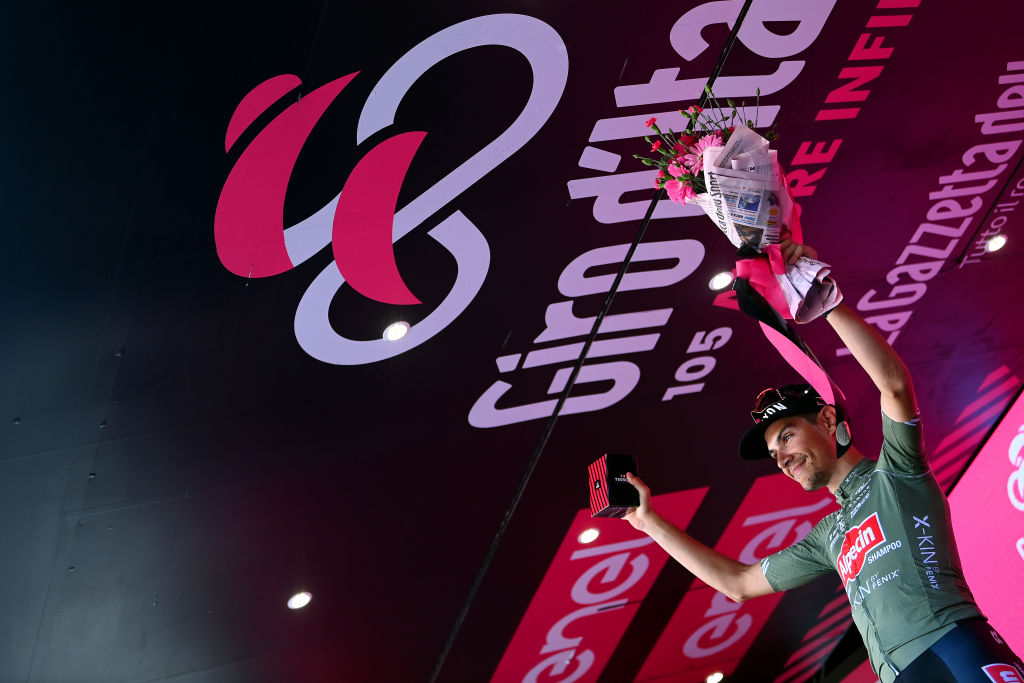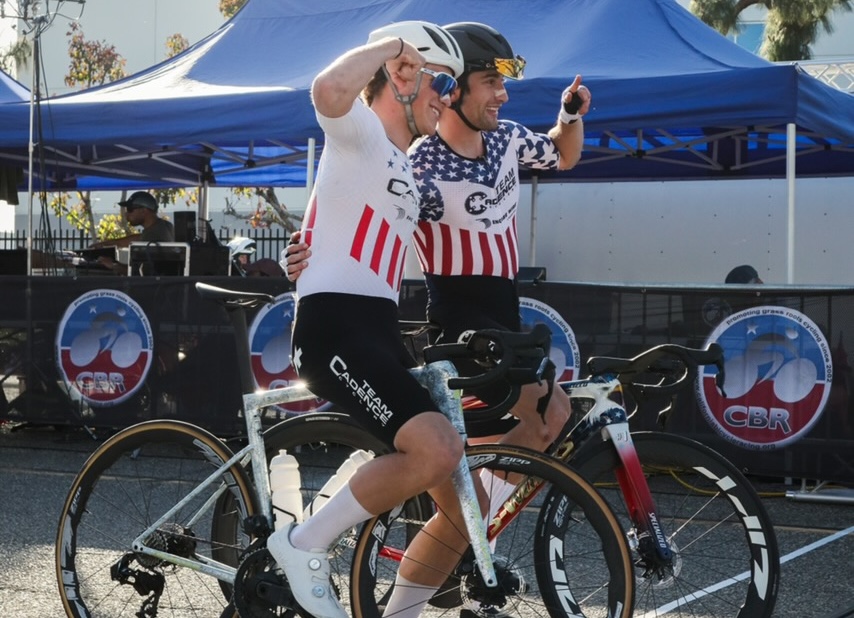Oldani: Italian riders disadvantaged by ban on altitude tents
Alpecin-Fenix rider unable to join teammates in Kolobnev's altitude hotel

The latest race content, interviews, features, reviews and expert buying guides, direct to your inbox!
You are now subscribed
Your newsletter sign-up was successful
Stefano Oldani had two Alpecin-Fenix teammates for company in the winning move on stage 12 of the Giro d'Italia, which was two more than he had by his side when he was preparing for this race atop Mount Etna last month.
Mathieu van der Poel and the bulk of the team's Giro d'Italia selection spent part of April cloistered in the Hotel Syncrosfera in Denia, where they slept each night in special atmosphere-controlled rooms that allowed them to artificially replicate the effects of being at altitude.
Oldani, however, was unable to join his teammates in Denia. The use of hypobaric chambers by athletes is not only prohibited in Italy, as Lotto discovered when police confiscated their altitude tent at the 2005 Giro, but Italian athletes are also forbidden from availing of the practice outside of their own country.
"I'm a bit disappointed because it's an old question," Oldani said after claiming stage victory in Genoa. "Nobody has taken things in hand and thought about the fact that there are maybe only one or two countries in the world – like Italy and, if I'm not wrong, Norway – where you can't do this kind of training by using a simulation of altitude.
"I'm upset because it makes me think of how far behind other countries we are in Italy. More than three-quarters of the peloton – maybe closer to 90% – uses this kind of training aid. And I think it would be useful if somebody thought about this so that Italian cycling wouldn't have this disadvantage."
In 2006, the World Anti-Doping Agency discussed adding the use of hypoxic chambers to its list of banned practices but ultimately decided against their prohibition. "The overwhelming consensus of our health, medicine and research committees was that, at this time, it was not appropriate to do so," then WADA president Dick Pound said.
The so-called 'hypoxic rooms' – altitude tents in popular parlance – in Denia are the brainchild of the Russian former professional Alexandr Kolobnev, and Van der Poel took up a lengthy residency in the Spanish hotel in February as he prepared for the Classics. Van der Poel returned to train for the Giro, but Oldani instead embarked on a hermetic camp on the side of a volcano.
The latest race content, interviews, features, reviews and expert buying guides, direct to your inbox!
"For me it wasn't easy to go to Etna for two weeks by myself for altitude training while the rest of the team was training together and creating a group dynamic," Oldani said. "They also had mechanics and soigneurs with them. Whereas I was basically alone on Etna. I think it's something that needs to be looked at and revised."
Van der Poel
On Thursday's stage from Parma to Genoa, Oldani was joined by Alpecin-Fenix teammates Van der Poel and Oscar Riesebeek in the decisive move that forged clear after a rapid opening 60km. In Naples last weekend, Van der Poel was left frustrated by his isolation in the sizeable break of the day, and Alpecin-Fenix's first objective on Thursday was to ensure that the Dutchman had teammates by his side when the early move went clear.
"The plan was to have more than one rider in there if a big break went clear. We didn't want to make the same mistake as we did in Naples," Oldani said. "In the end, we were the only team with three in the break. Mathieu was the leader for the day, and I think you saw me bringing him bottles, ice and gels at various times.
"When I followed Lorenzo Rota and the rider from Jumbo-Visma [Gijs Leemreize – ed], I was just trying to close them down and keep a high pace, but then a gap opened up behind us and we got away."
On the approach to Genoa, which took the race over the Ponte Morandi, rebuilt after its tragic collapse in 2018, Oldani spoke with his friend and compatriot Rota, and each man agreed to try his luck in the uphill sprint on Via XX Settembre. After Leemreize's twin attacks in the final kilometre petered out, Oldani had the strength to fend off Rota in the sprint.
Past the finish line in the shadow of the striking Palazzo della Borsa, Oldani sat on the ground, scarcely able to believe that he claimed his first victory as a professional. The 24-year-old from Milan turned professional with Lotto Soudal in 2020 and had some near misses in the past, placing fourth on a stage in Foligno on last year's Giro and second in the Volta Limburg Classic last month.
"I've always had a winning mentality, but in the last four years, I haven't won," Oldani said. "My last win came as an under-23 rider and I missed having that feeling of victory. Sometimes I'd say to myself – and pardon my French – 'Fuck, imagine if you won a stage of the Giro.' But I didn't want to think about it too much either, I didn't want to get ahead of myself."

Barry Ryan was Head of Features at Cyclingnews. He has covered professional cycling since 2010, reporting from the Tour de France, Giro d’Italia and events from Argentina to Japan. His writing has appeared in The Independent, Procycling and Cycling Plus. He is the author of The Ascent: Sean Kelly, Stephen Roche and the Rise of Irish Cycling’s Golden Generation, published by Gill Books.
